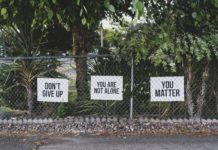Further Results Confirm Antidepressants Increase Risk of Violent Crime By 26%
Taking an SSRI antidepressant was associated with a 26% increased risk of violent crime conviction.
The First Studies of Antidepressant Withdrawal
The history of antidepressant withdrawal dates to the first articles on imipramine in the late 1950s. It is useful to compare discussion of both generations of psychiatric drugs and focus on shared efforts to deny and minimize their withdrawal syndromes.
How Psilocybin-Assisted Therapy Changed My Life
I don’t drink or smoke. I’ve never taken any drugs till four years ago. Yet today, my life revolves around psychedelic medicines—heavily stigmatized substances still illegal in this country and most others across the world. How did this happen?
A Letter to the American Psychiatrist Who Labeled Me
The bipolar label and the drugs you prescribed after talking with me for half an hour robbed me of my humanity. What did they not do? Prevent any of the psychotic episodes I had after the first one.
You’ve Got to Be Crazy to Go to a Psychiatrist
To those who say that major scientific/medical advances since 1975 have made going to a biological psychiatrist a rational choice, I say: What advances?
45 years have passed: Is any psychiatric “diagnosis” now verified by lab test, x-ray, or physical exam finding?
Addiction Treatment: How Many Meds Does It Take to Get Sober?
I started to wonder, “How many medications does it take to get sober?” In fact, the biggest correlation I’ve noticed with relapse and overdose is the amount of psychiatric medications being prescribed.
Unblinding in Antidepressant Trials Biases Results
Studies that compare the effectiveness of different antidepressant drugs are unreliable, according to new research in BMC Psychiatry.
How Mindful Awareness Can Reduce Suffering
Suffering can be altered when people learn how to respond differently to their pain. This is the principle behind mindfulness-based stress reduction, which was designed to incorporate Buddhist practices into chronic pain treatment.
Overheated, then Overtreated: My 10-Day Involuntary Hold
Had the hospital simply treated me for heatstroke, they would have made next to nothing. But 11 days in the hospital (10 on a locked ward) and a battery of tests and psych drugs? Well, I’ll let you do the math.
Suicidal Thoughts, Psychiatric Diagnosis, and What Really Helps: Part Two
This piece is the second of a two-part essay about suicide, diagnosis, what doesn't help, and what does help. This part is about barriers to seeking help and about the ways we actually can be of help to people who are considering suicide.
Suicidal Thoughts, Psychiatric Diagnosis, and What Really Helps: Part One
This piece is the first of a two-part essay about suicide, diagnosis, what doesn't help, and what does help. This part is about suicide, diagnosis, and some of what fails to help.
Leading Psychology in Existential Times: An Interview with Kirk Schneider
MIA’s Justin Karter interviews humanistic-existential psychologist Kirk Schneider about how psychology can play a role in confronting the political, social, and climate crises facing humankind.
A Conversation with Nev Jones
A dialogue between Nev Jones and Sandy Steingard about Mad in America, critics of psychiatry, medication for psychosis, Open Dialogue, and the need for racial and class justice.
VICE, MIA and The Movement Against Psychiatry
The Vice article was presented as an exploration of the “movement against psychiatry,” and yet you can see, once it is deconstructed, how it told a story that surely pleased the promoters of the conventional narrative, and put the “critics” on the defensive at almost every turn.
Why Is the APA Proposing Sweeping Changes to Training Requirements?
The American Psychological Association has proposed sweeping changes to training, focusing on the behavioral health model, which reduces the complexity of the human experience to observable behaviors.
“I Found My Lion’s Roar”: Ro Speight on Combining Peer Support and Open Dialogue
MIA's Ana Florence interviews recovery advocate Ro Speight about her journey from receiving Peer Support to working as a facilitator in Peer Partnered Open Dialogue.
Up in the Air: Surviving 24 Hours with Akathisia
Flying from Anchorage to Cleveland while suffering from life-threatening akathisia was going to be a constant push-pull between the urge to freak out and maintaining my body and psyche so as not to scare the other passengers.
Malcharist: Fact or Fiction? Big Pharma, Psychiatry’s Key Opinion Leaders and their Ghostwriters
Malcharist, by Paul John Scott, is a fictional account of one of psychiatry’s most influential key opinion leaders (KOLs), his ghostwriter, and a journalist on the trail of a big scandal in the world of Big Pharma.
The Mirror Repeats: The Art of Phoebe Sparrow Wagner
It is uncomfortably difficult to look at Phoebe Sparrow Wagner’s art. That much is intentional. She shakes up the viewer’s sense of wellbeing and security so that they can better identify with the plight of the mental patient.
Stuart Shipko – SSRI Withdrawal: Shooting the Odds
We interview Dr. Stuart Shipko, a psychiatrist and author who has a particular interest in the side effects and withdrawal effects of SSRI antidepressants and the need for informed consent when prescribing.
Out of the Abyss (with a Little Help from My Friends)
An ER doctor told me I was experiencing venlafaxine withdrawal, then told me to go home and take care of myself. Unbeknownst to me, I was about to enter pure hell.
Stop Saying This, Part Four: Does Time Heal All Wounds?
In part four of this series, Megan Wildhood takes on the tropes of "That's not about you," "The outer world is a reflection of your inner world," "I didn't mean to," and "Time heals all wounds."
CAUTION: Spin Ahead! There is No Evidence That Psychostimulants Reduce the Risk for Infection...
Debunking a recent study on ADHD and COVID-19: It suffers from a series of manipulations and spins that are inappropriate in scientific research that aspires to objectivity and that aims to reveal truths.
Tapering Strips Help People Stop Using Antidepressants, Study Finds
A new study by Peter Groot and Jim van Os investigated whether tapering strips can help people stop using antidepressants.
Hearing Voices: Let the Community Lead
A collective knowledge of lived experience is a straightforward answer for improving millions of lives, but it has become clear that it will take an organized community of voice-hearers and their allies to take back credibility and authorship on the narrative of our own lives.

































